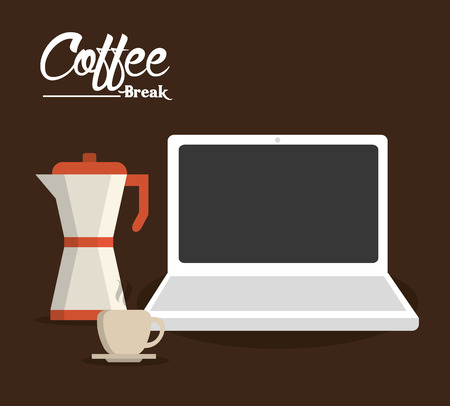Understanding British Coffee Shop Culture
To truly deliver exceptional customer service and an inviting experience in a British coffee shop, it’s essential to first appreciate the subtle yet significant nuances that define local café culture. Unlike the fast-paced, takeaway-oriented approach often seen elsewhere, British coffee shops are rooted in traditions of warmth, comfort, and connection. Customers don’t just come for a caffeine fix—they seek a space where they can unwind, enjoy a chat with friends or the barista, and feel at home. The expectations extend beyond just great coffee: guests look for friendly greetings, attentive but unobtrusive service, and an ambience that balances cosiness with understated elegance. Understanding these cultural values is the foundation for creating a welcoming atmosphere that feels authentically British and keeps customers coming back.
2. The Core of Exceptional Customer Service
When it comes to customer service in a British coffee shop, certain qualities resonate deeply with local customers. Beyond just serving a great cup of tea or coffee, what truly sets a café apart is how the staff interact with guests. Politeness, attentiveness, and authentic friendliness are not simply nice-to-haves—they are essential expectations. British patrons appreciate when staff greet them with a warm “Good morning” or “How are you today?” and maintain an approachable yet respectful demeanour throughout the visit.
A key aspect lies in understanding the subtleties of British etiquette. Unlike some cultures where overt enthusiasm might be welcome, British customers often prefer genuine engagement that respects their personal space. Attentiveness means noticing when someone’s cup is empty or when they look uncertain about the menu, and offering help without being intrusive. Authentic friendliness comes across in small gestures—a smile, remembering a regular’s order, or a simple “thank you” as they leave.
What Matters Most to British Customers
| Quality | Description | Examples in Practice |
|---|---|---|
| Politeness | Consistent use of courteous language and mannerisms | Saying “please”, “thank you”, addressing customers as “sir” or “madam” when appropriate |
| Attentiveness | Being observant and responsive to guest needs without hovering | Refilling water, clearing tables promptly, noticing if someone needs assistance |
| Authentic Friendliness | Displaying genuine warmth rather than scripted smiles | Engaging in light conversation, remembering preferences, offering local recommendations |
The Impact on Brand Loyalty
Coffee shops that embed these values into their daily operations foster trust and loyalty among their clientele. In the UK’s competitive café scene, these small but significant details can turn first-time visitors into regulars who feel at home—and encourage them to recommend the shop to friends and family.

3. Training Baristas for British Hospitality
Delivering an exceptional customer experience in a British coffee shop starts with the people behind the counter. To truly embody British hospitality, barista training must go beyond technical skills and embrace the subtleties of local manners and conversational customs. Here are practical strategies to build a genuinely welcoming team:
Polished Greetings and First Impressions
The power of a warm, sincere greeting cannot be overstated. Train your team to use polite phrases such as “Good morning,” “How can I help you today?” or “Would you like a seat by the window?” A smile paired with a gentle tone sets the scene for positive interaction. In British culture, a touch of formality—without being stiff—creates an inviting and respectful atmosphere.
Mastering Local Conversational Etiquette
Small talk is an art form in the UK, often centred around weather, recent local events, or even a simple compliment about a customer’s choice of drink. Encourage your staff to engage in light conversation while being mindful not to intrude on personal space or privacy. Listening actively and responding with phrases like “That sounds lovely” or “I hope you enjoy it” demonstrates genuine care, aligning with British expectations of subtle friendliness.
Building Confidence Through Role-Play
Regular role-play sessions help baristas practice various scenarios—from handling complaints gracefully to recognising regular customers’ preferences. Use these opportunities to reinforce key British values: patience, respect, and understated attentiveness.
Celebrating Diversity within British Hospitality
Recognise that many UK communities are wonderfully diverse. Equip your team to be inclusive, sensitive to different accents, and aware of regional customs. The ability to adapt greetings or topics of conversation according to the customer’s background enriches the overall coffee shop experience.
By focusing on these practical elements of training, your coffee shop will stand out as a hub of genuine warmth and connection—a hallmark of true British hospitality.
Designing an Inviting Space
When it comes to crafting a truly welcoming British coffee shop, décor and layout are just as crucial as the menu itself. The quintessential UK café experience goes beyond excellent brews—it’s about creating an atmosphere where everyone feels at home, whether they’re popping in for a flat white or settling down with a good book. Understanding local preferences and cultural nuances is key to designing an environment that resonates with your audience.
The Essentials of British Cosiness
Cosiness—what Brits call “cosy”—is at the heart of every successful coffee shop. Think soft lighting, comfortable seating, and textures that invite guests to linger. Warm woods, vintage touches, and subtle nods to local heritage (like framed prints of London landmarks or tartan cushions) can make all the difference. Small details such as fresh flowers on tables or chalkboard menus add layers of personality and warmth.
Layout Matters: Encouraging Comfort and Conversation
The layout should strike a balance between privacy and sociability. In the UK, many customers value their personal space but also appreciate opportunities for casual conversation. Consider these elements:
| Feature | Benefit for Customers |
|---|---|
| Window seats | Perfect for people-watching or solo visitors |
| Communal tables | Foster interaction among groups or strangers |
| Nooks & corners | Provide quiet spots for work or reflection |
| Flexible seating | Accommodates families and different group sizes |
Subtle Touches: From Friendly Signage to Ambient Soundscapes
The little things matter. Handwritten “Welcome” signs, locally inspired wall art, and even curated playlists featuring British artists contribute to an approachable vibe. Avoid harsh lighting or overly loud music; instead, opt for gentle illumination and background tunes that encourage relaxation. These thoughtful choices signal that your café is a place where everyone—regulars and newcomers alike—can feel comfortable unwinding.
Ultimately, by focusing on décor, layout, and those intangible British touches, you’re not just selling coffee—you’re delivering an authentic experience that keeps people coming back.
5. Handling Customer Feedback the British Way
One of the hallmarks of a truly welcoming British coffee shop is the artful handling of customer feedback. In the UK, where understated politeness and a “stiff upper lip” are valued, responding to both praise and criticism requires a blend of empathy, grace, and cultural sensitivity.
Embracing Politeness and Active Listening
British customers often express their concerns subtly, using indirect language or softening complaints with phrases like “I wonder if you could…” or “Would it be possible to…”. Staff should be trained to actively listen for these cues, responding with attentive body language and verbal reassurance—simple acknowledgements such as “Thank you for letting us know,” or “I really appreciate your feedback,” go a long way in building rapport and trust.
Responding with Empathy and Discretion
When faced with negative feedback, it’s crucial to remain calm and empathetic. Instead of offering immediate solutions or deflecting blame, staff should first express understanding: “I’m so sorry that your experience wasn’t up to our usual standard.” This approach reassures guests that their feelings are valid. If appropriate, offer a sincere apology and propose a discreet resolution—perhaps a complimentary drink or an offer to remake their order—always delivered quietly, respecting the customer’s desire for privacy and avoiding unnecessary attention.
Cultural Sensitivity in Every Interaction
Above all, remember that British coffee shop culture values modesty and respect. Avoid being overly familiar; instead, use polite forms of address (“Sir”, “Madam”) unless invited otherwise. When following up on resolved issues, a gentle check-in—“Is everything alright now?”—demonstrates genuine care without being intrusive. By consistently responding to feedback in this culturally attuned manner, your coffee shop not only resolves issues gracefully but also transforms potential detractors into loyal advocates.
6. Encouraging Repeat Visits and Building Loyalty
In the competitive landscape of British coffee culture, turning a first-time guest into a regular is a mark of true customer experience success. Brand loyalty in the UK goes beyond stamp cards; it’s about making every guest feel like part of a community. For coffee shops looking to stand out, fostering genuine relationships is key—grounded in British values of warmth, familiarity, and local pride.
Localised Loyalty Programmes
While loyalty cards remain popular, British customers appreciate schemes with a personal touch. Instead of generic rewards, consider offering perks that celebrate local traditions—like exclusive discounts on afternoon tea specials or free scones on St George’s Day. Digital loyalty apps can also be tailored to include community-focused milestones, such as “Neighbourhood Hero” status for those who refer friends or support local causes through their purchases.
Hosting Community Events
Coffee shops in the UK thrive when they act as social hubs. Hosting events—whether it’s a weekly pub-style quiz night, book clubs championing British authors, or charity bake sales supporting local initiatives—turns your space into more than just a pit stop for caffeine. These experiences deepen customer connections and create lasting memories associated with your brand.
Supporting Local Producers
Another powerful way to build loyalty is by showcasing and collaborating with regional suppliers. Highlighting locally roasted beans, British dairy, or artisan pastries not only boosts your credibility but also resonates with the national trend toward supporting homegrown businesses. Sharing these stories in-store and online reinforces your coffee shop’s roots within the community.
Consistency and Recognition
Finally, nothing beats the power of remembering regulars’ names and favourite orders—a cornerstone of British hospitality. Train your team to offer a warm greeting and personalised service; small gestures like this often have a greater impact than any promotion. By consistently delivering thoughtful service and engaging authentically with your guests, you’ll turn casual customers into loyal advocates for your brand—ensuring your coffee shop remains a beloved fixture in the neighbourhood.
